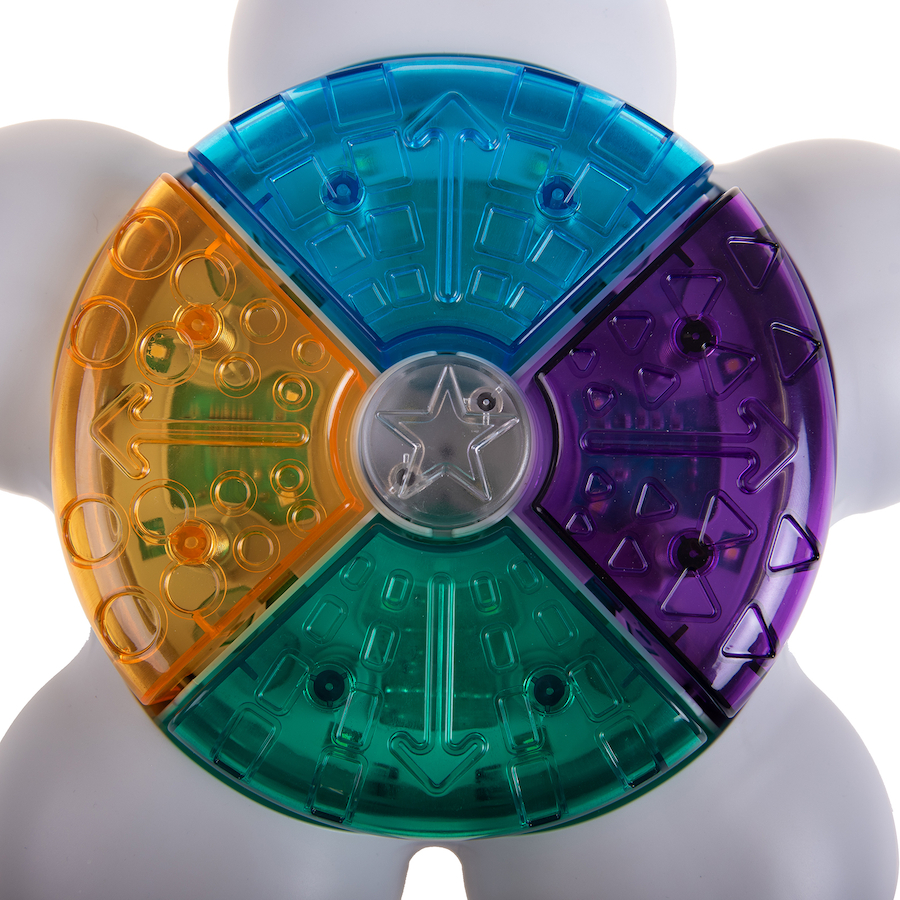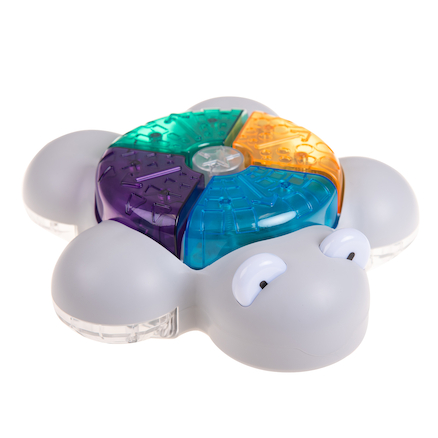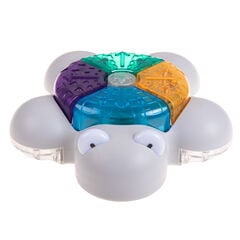Ready to go on an Adventure?
The world of education is evolving at a rapid pace, and it’s not just older pupils who are benefiting from technological advancements. Early years classrooms and settings are also embracing the future with open arms. One exciting addition to these environments is the introduction of Glow and Go Bot. This charming, interactive robot is not just a toy; but is a powerful tool for encouraging learning in young children. Not only can the children develop key skills with the bot, but can also have great learning adventures.
Glow and Go Bot has been specifically designed alongside Early Years practitioners to ensure it is the ideal accompaniment to work alongside children’s development in those key years and stages. Glow and Go Bot has big tactile buttons which help children to differentiate between buttons easily and associate each of them with music, light and movement actions. This introduces cause and effect in engaging ways and opens up a range of activity options for incorporating Glow and Go across the curriculum, both in 1:1 situations and group scenarios.
The Learning Benefits of introducing Glow and Go Bot to Early Years Classrooms and Settings
Sparking Curiosity and Engagement
Robots are inherently fascinating to young children. Their movement, lights, and sounds captivate little minds, igniting curiosity and enthusiasm for learning. When a child interacts with Glow and Go, they’re drawn into a world of exploration and wonder, making the learning process an adventure. To enhance learning further, why not introduce more glow resources to your adventures with Glow and Go Bot.
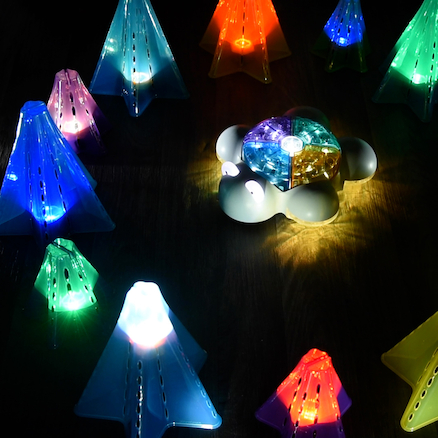
Promoting Motor Skills Development
In early years, children are rapidly developing their gross and fine motor skills. Robots such as Glow and Go Bot and other programming devices with directional buttons encourage physical activity as children press buttons to command the robot’s movement. This fosters the development of hand-eye coordination and gross motor skills as they observe and engage with the robot’s movements. Glow and Go’s tactile buttons add an extra sensory processing level.
Cultivating Problem-Solving Skills
Introducing floor robots, like Glow and Go Bot, to early years classrooms offers an excellent opportunity to introduce children to basic problem-solving. In “programming” modes, children learn to create sequences of commands and observe the outcomes, teaching them the concept of cause and effect and sequential thinking. This can be as explicit or implicit as practitioners choose for different cohorts of children.
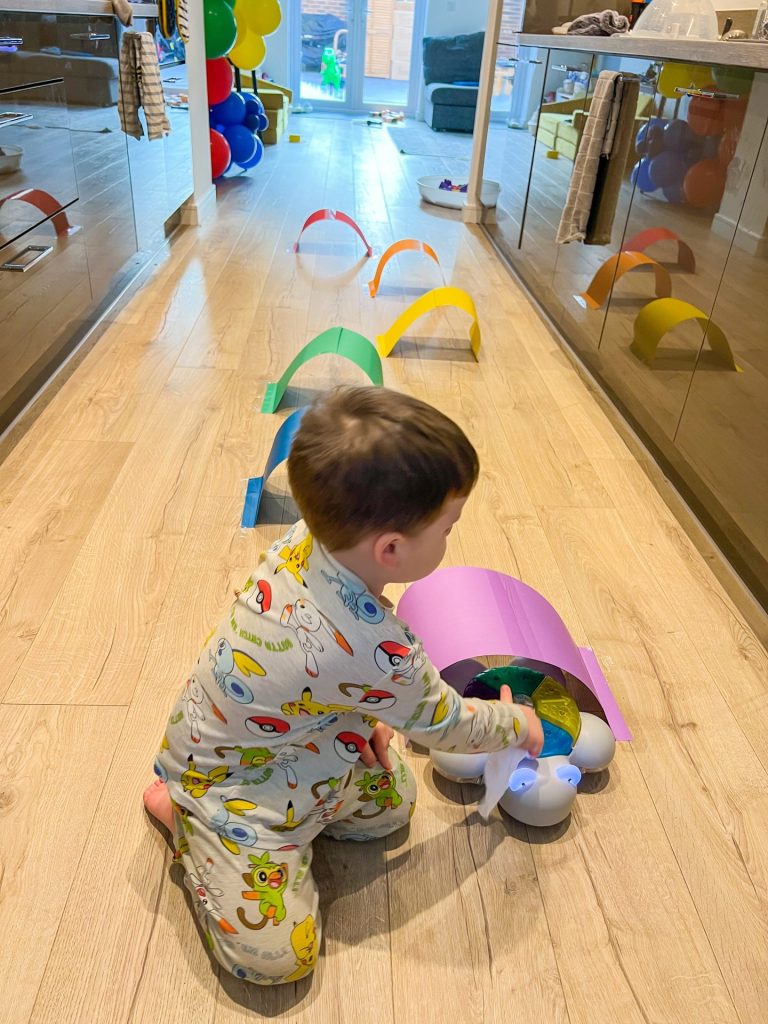
Enhancing Communication and Language Development
Through storytelling, children can use Glow and Go Bot as a character in their narratives. This promotes language development as they describe Glow and Go’s adventures, actions, and feelings. Children become storytellers, strengthening their communication skills.
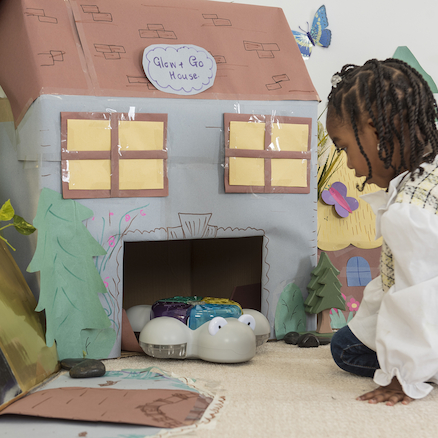
Building a Foundation for Computational Thinking
Incorporating robots into the learning environment introduces young learners to fundamental concepts of computational thinking. They begin to understand that commands create specific actions, which is a core principle of computer programming. This foundation can serve them well as they progress in their education.
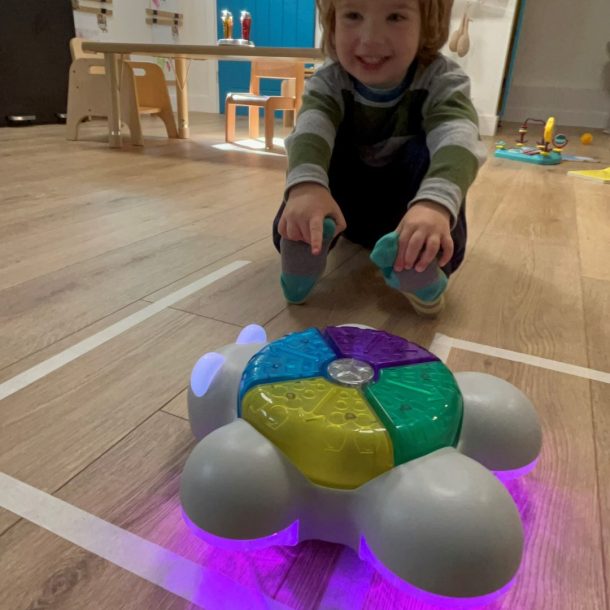
Encouraging Collaborative Learning
Robots can be used to foster collaboration among children. Group activities involving Glow and Go Bot promote teamwork, communication, and the sharing of ideas. These early collaborative experiences build vital social skills and take the children on great learning adventures.

Connecting with Key Stage 1 Computing Curriculum
While robots offer numerous educational advantages, they also connect with early programming. Children begin to grasp and experience essential computing concepts such as algorithms, sequencing, and debugging, setting them on a path towards digital literacy.

As early years settings adapt to a changing educational landscape, Glow and Go Bot offers a valuable tool for inspiring young learners by creating a dynamic, engaging environment that nurtures curiosity, motor skills, problem-solving abilities, and more. Whether children are creating multi-step programming sequences, or simply hitting the buttons to dance along with the music, we know that Glow and Go Bot will become a firm friend within many Early Years settings.
Free teaching and learning materials for Glow and Go Bot
To find out about other resources that can be used alongside Glow and Go Bot to spark curiosity and engagement, read the following blog: Enhancing Children’s Glow and Go Bot Experiences
If you are interested in trying out different activities with Glow and Go Bot, why not take a look at these free activity downloads:
General activity ideas for Glow and Go Bot including ideas on areas such as schematic play, sensory, communication and vocabulary, creativity and STEAM.
blog.tts-group.co.uk/wp-content/uploads/2024/12/Glow-and-Go-Practitioner-Notes.pdf
Activities ideas across different learning areas.
blog.tts-group.co.uk/wp-content/uploads/2025/01/Activity-ideas-for-Glow-and-Go-Bot.pdf
Early Years appropriate activity ideas focusing on the prerequisite skills needed for later computing.
blog.tts-group.co.uk/wp-content/uploads/2025/01/Early-Computing-Activity-Ideas.pdf
Find out more about other schools and settings experiences with Glow and Go Bot.
blog.tts-group.co.uk/wp-content/uploads/2025/01/Glow-and-Go-Bot-Case-Studies.pdf
Many thanks to Jodie Lopez for writing this blog.
Jodie Lopez is an ex-primary school teacher who has won several awards for her use of technology across the curriculum. She moved from full-time teaching into working with education technology companies. She helps them to bridge the gap between school and products/services on offer. As a Teaching Awards judge, she loves to see and hear about all the fantastic work teachers and schools are doing.
You can find Jodie at @jodieworld on Twitter, where she is always happy to answer any questions you have about technology for your school.


